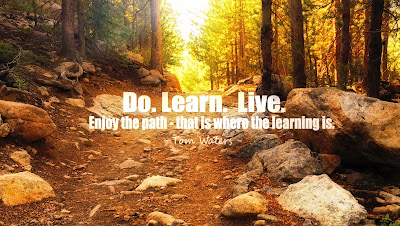The Growth Problem with Evaluations
Many teacher and principal evaluation systems are evolving more and more into growth vehicles. And that's a good trend.
However, there's a major problem haunting evaluation systems.
Evaluation systems will never equal growth systems.
I know that's superlative, and there's no room for mistake in my claim. So let me explain.
Evaluation Does Not Equal Growth
Evaluation is judgment. It's a stamp in time on your performance.Evaluation is a rating. A score. It's not a discussion that promotes thought, reflection, or creativity. Therefore, it does not equal growth.
That's not to say evaluation is unnecessary. Of course, it's needed for many reasons. But it's not to be confused with growth tools.
Evaluation is about Employment
An evaluation measures your performance as an employee. It doesn't gauge you as a professional or as a person.It compares you to the expectations of an organization. It's used to make employment decisions and formalize decisions from a human resource standpoint.
Evaluations are important for legal decisions and for recommendations of promotion or of termination. These are weighty purposes, and they override any intent for evaluation to be about growth.
The Affective Barrier in Evaluation Systems
Employees don't think through all of the purposes above. They understand them at an intrinsic level. And they have a major affective impact.When you are weighing someone's employment, you are weighing their livelihood, their family, their lifestyle, and their survival. This creates an affective barrier to any purposes of growth in an evaluation system.
You can design goal-setting, formative checkpoints, and non-evaluative coaching sessions. These features will inch an evaluation system toward a growth model.
However, it does not break the affective barrier for the employee. It remains an evaluation system. That's the growth problem with evaluations.
The affective barrier prevents creative exploration and discovery. It hinders innovative thinking for fear of failure.
Growth is a human endeavor, but evaluation is an employment endeavor. The two will always remain distinct with significant differences.
Related Reading:
- 5 Steps to Promoting Growth
- Create Growth with a Healthy School Culture
- Letting Go of Perfect: Embrace Growth




Comments
Post a Comment
What are your thoughts?